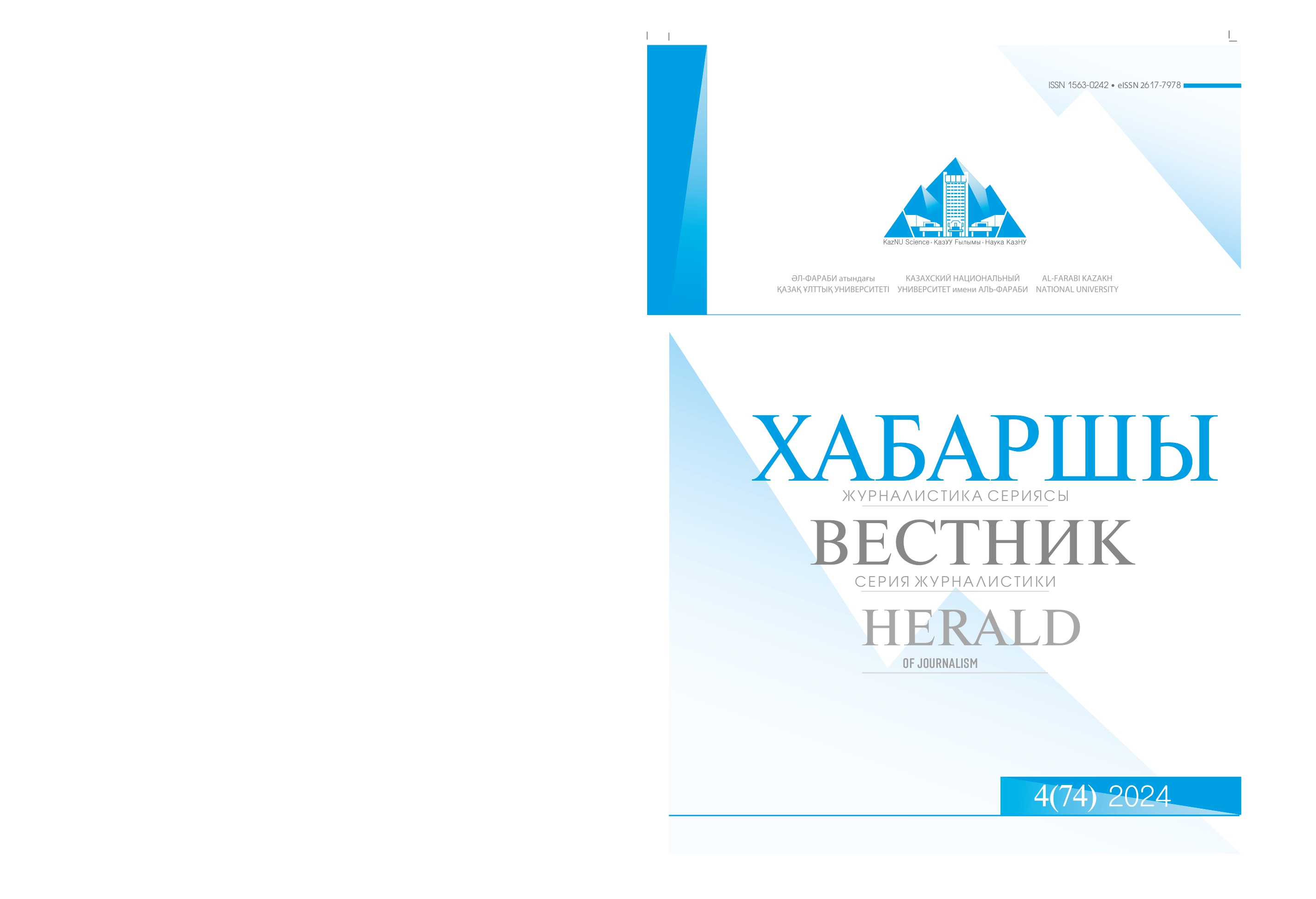Media literacy issues in digital advancement period
DOI:
https://doi.org/10.26577/HJ.2024.v74.i4.8Keywords:
media literacy, fake news, disinformation, misinformation, information technology, false information, fact-checking.Abstract
Information technology has a lot of prospects thanks to the quick growth of digital technology, particularly with regard to free Internet social network access. As a result, there is now a free flow of knowledge and freedom in its creation and dissemination. This implies that anyone with a device can now produce their own content and disseminate information, in addition to journalists and media outlets. And as a result, there is now more unsubstantiated, erroneous, and inconsistent material available. As a result, being able to recognise bogus information has become increasingly crucial in the current digital age. In addition to having a detrimental effect on people's consciousness, socioeconomic status, and moral fibre, fake news can compromise the integrity of the nation's political and social fabric as well as information security. Scientists from all around the world suggest media literacy as one of the special strategies to buck this tendency in this instance. There are efforts underway to prevent people especially youth from being misled by misleading information by raising the population's level of media and information literacy. This study looks at media literacy as a means of fending off misinformation and manipulation. It offers a theoretical and practical overview, evaluates scientific writings by both domestic and foreign writers, and assesses the degree of media literacy of the population in the country.




